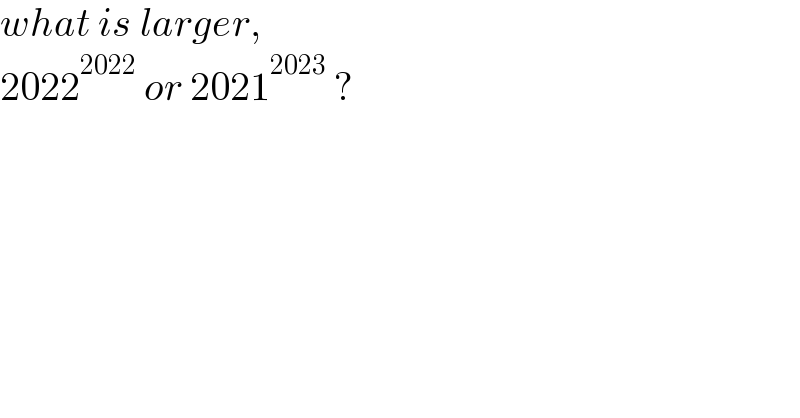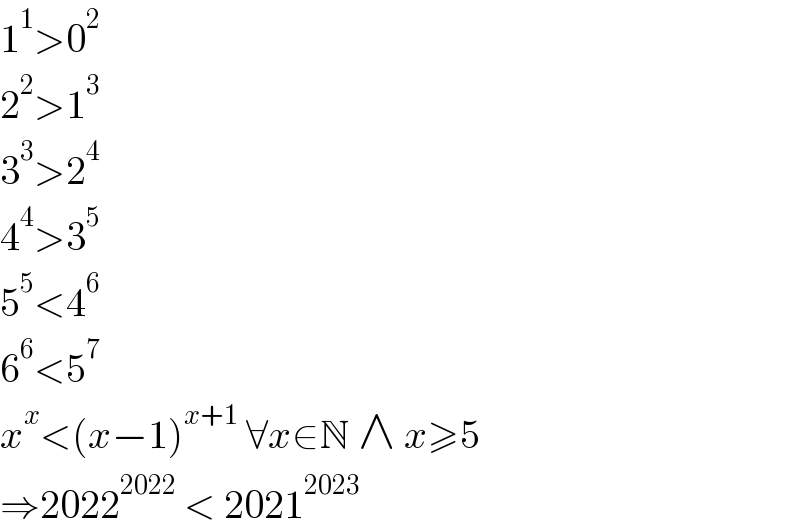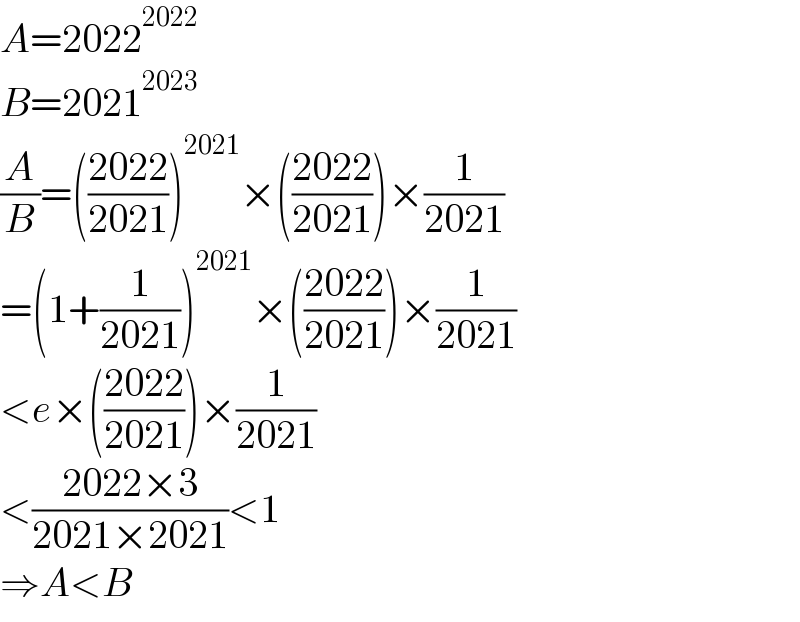
Question and Answers Forum
Question Number 183660 by mr W last updated on 28/Dec/22

Answered by Ar Brandon last updated on 28/Dec/22

Answered by manxsol last updated on 29/Dec/22

Answered by mr W last updated on 28/Dec/22

| ||
Question and Answers Forum | ||
Question Number 183660 by mr W last updated on 28/Dec/22 | ||
 | ||
Answered by Ar Brandon last updated on 28/Dec/22 | ||
 | ||
| ||
Answered by manxsol last updated on 29/Dec/22 | ||
 | ||
| ||
Answered by mr W last updated on 28/Dec/22 | ||
 | ||
| ||